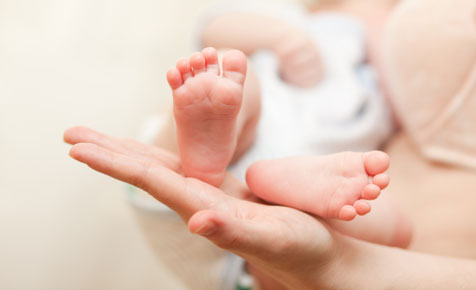While fast labours are still regarded as being relatively normal, there are some aspects that tend to be more common for women who experience them.
These can include:
A ‘stunned’ baby
Some babies are a little ‘stunned’ after being born quickly, and may take up to a minute or so to ‘catch up’ with the fact that they have arrived. Your caregiver may need to stimulate your baby, by rubbing their skin with either their hands or a bunny rug, to help them to respond. It may be necessary to give the baby some oxygen as well. Most babies respond well within a minute or so of doing these things, as they realise they are no longer in the womb.
Perineal tears
A fast birth can increase the chances of the woman’s perineum tearing, enough to need stitches. This is because the perineal tissues don’t have adequate time to stretch up slowly, as they do when the baby’s head slowly descends and moves back, with multiple contractions in a labour of normal length.
Haemorrhage
For some reason, women who have fast labours seem to be more inclined to bleed more heavily after the birth. Although there is no precise reason, it is as if the uterus works really hard, and then decides it has ‘had enough’ and is not interested on contracting efficiently any more, after the birth.
Surprised caregiver
While most caregivers recognise that fast labours are possible, they tend to presume most labours will take a while. So when a labour is faster than expected, it can take them a little by surprise. This could mean the caregiver ‘missing the birth’, or advising you to stay at home longer, when you phone them in labour. Sometimes this can result in you having the baby soon upon arrival at the hospital (or even before).







Leave A Comment
You must be logged in to post a comment.